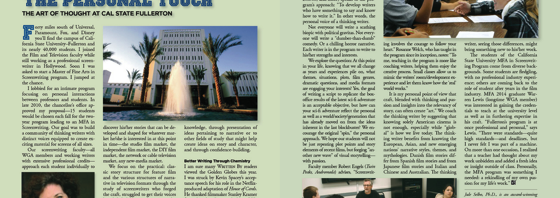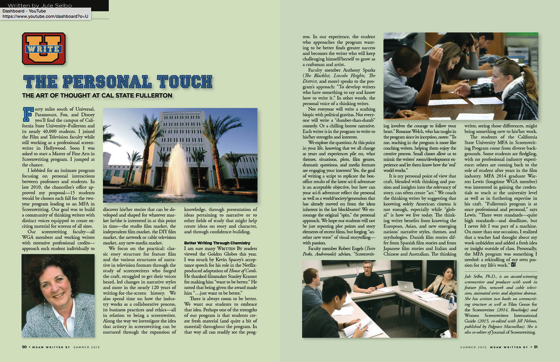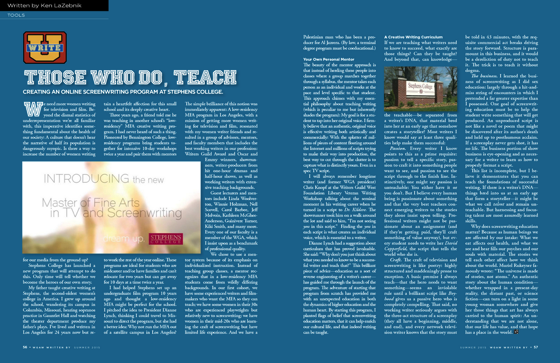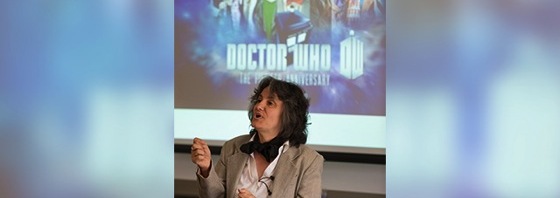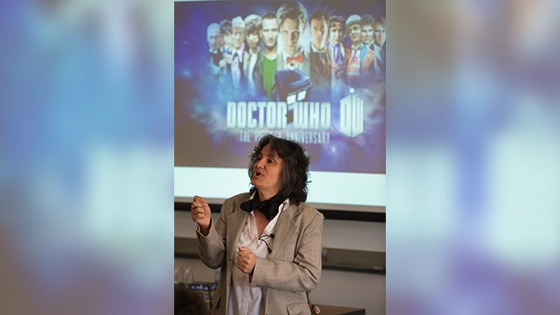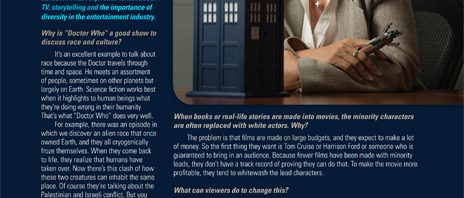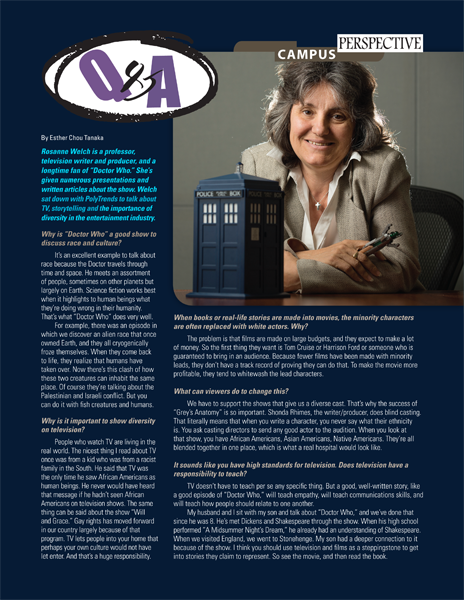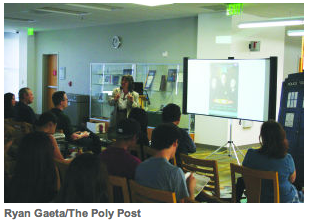Check out page 50-51 for a marvelous piece by my friend Jule Selbo about the MFA in Screenwriting she created for Cal State Fullerton! And page 56-57 for the great piece by other friend Ken Lazebnik on the new Stephens College MFA in Screenwriting! Each of the directors of these two programs care deeply about their students — and about the quality of the craft — so it’s a pleasure working with them! (And read the rest of the issue because it has a great piece on the writers behind GRIMM which really takes you inside the creative brain as it conjures up a new world of characters worth visiting each week!)
Category: Press
Rosanne moderates Talkback Tuesday panel on “The Whipping Man” at the Pasadena Playhouse
On Tuesday February 24th, I had the great pleasure of moderating a Talkback Tuesday panel at the Pasadena Playhouse that followed a performance of The Whipping Man by Matt Lopez.
Joining me for the discussion “Writing Race for Television and the Stage” were Walter Allen Bennett, Jr., whose credits include writing for The Cosby Show and 704 Hauser Street, and executive producing The Steve Harvey Show and Ralph Remington, a director-producer who has served as a Director at the National Endowment for the Arts and an Assistant Executive Director of Actors’ Equity who also founded the Pillsbury House Theatre in Minneapolis where he staged such shows as The Sign in Sidney Brustein’s Window (by Lorraine Hansberry) and Streetcar Named Desire (by Tennessee Williams).
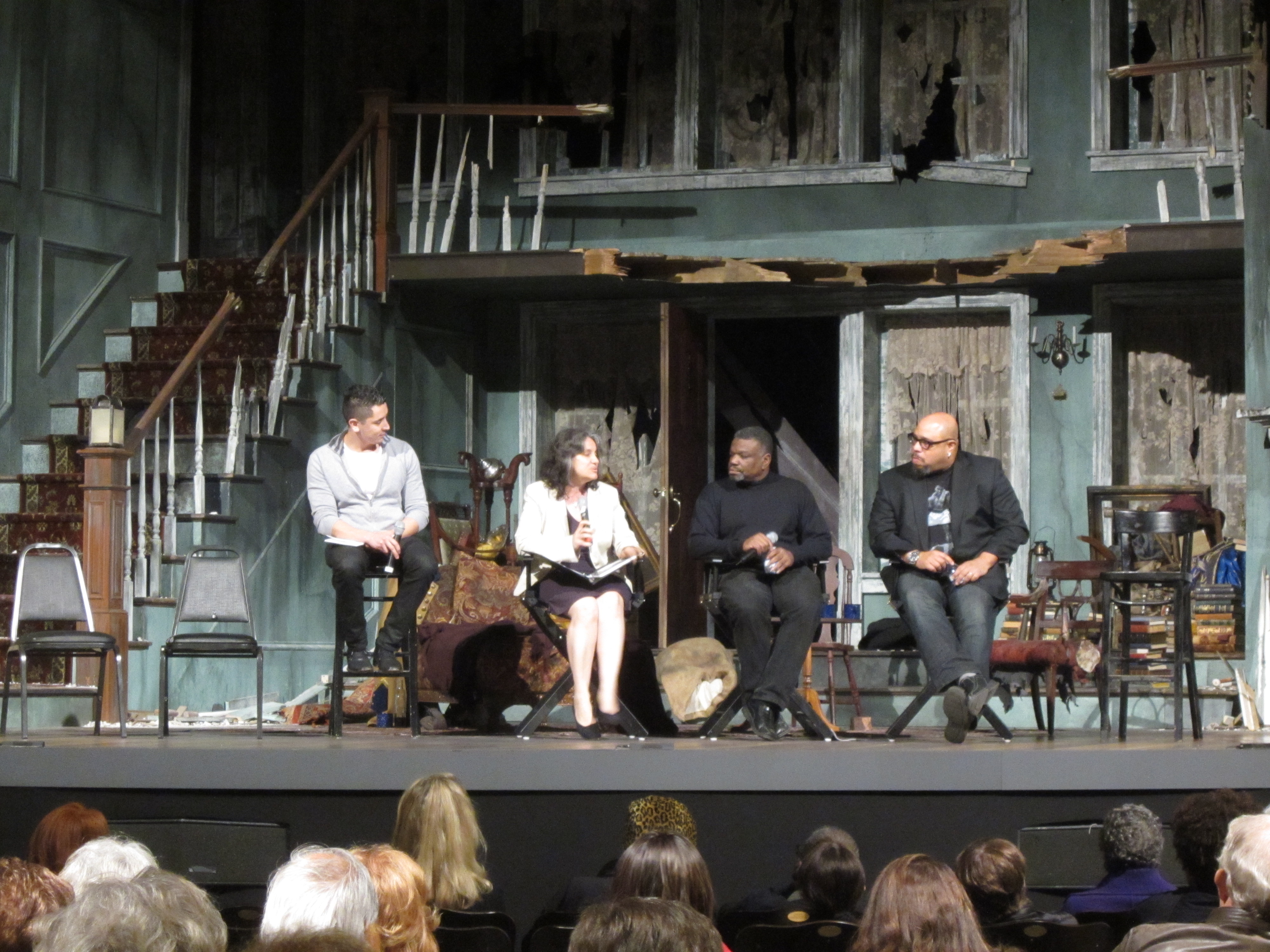
We discussed the lack of variety in the types of African American characters who populate our stages and screens and the need for more and more unique stories to be told so that the stereotypes can be broken in the next generation. We also tried to address the ways writers of all colors can write about characters of all colors respectfully. The audience was highly moved by the spirituality of the play and wanted to know more about the small number of Jewish slaveholders in the south –what happened to their slaves and their faith after the Civil War ended and, particularly, why people who praised Moses for bringing their ancestors out of slavery would ever maintain the practice themselves. That’s when I knew that our education system is failing in this area because no one realized the deep financial need for accepting and adapting to that labor system if one wanted to be wealthy as a Southerner.
Later in the discussion the cast joined us on stage as well. With Charlie Robinson, who played Simon (and once guest starred on Touched by an Angel) we discussed the deep research he conducted to create the role of a slave steeped in Judaism and the quality of roles available to African Americans and the difficulty in choosing well to build a career. He made some jokes about his earlier work in Night Court and we ran out of time before I could remind him that on that program all the characters were equally comical so his clerk was not merely there to create laughs. I then asked Adam Hass Hunter, who played Caleb the Jewish Confederate soldier dying of gangrene how much true history of slavery had been taught to him in his K-12 public school education as a child in Kentucky. As expected, he had no real memories of ever being taught the truth about slavery and had to conduct similar research.

Before the play we all met with the Associate Artistic Director of the Playhouse, Seema Sueko and had a great time discussing the status of the industry (television) and our individual histories of involvement with the play A Raisin in the Sun, which we had all worked on at some point in our careers. We also chatted about how ‘white’ writers can avoid knowing anything about African American history and still survive in an artistic world but African Americans must know about mainstream history in order to work. I was reminded of the TED Talk by Chimimanda Adiche on “The Dangers of a Single Story” that I share with my MFA screenwriting students.
Thanks to Victor Vasquez, the Community Organizer, for inviting me and to my various students who came out to attend the show and join in the discussion.
News: University Library Divulges Rhyme and Reason for Diverse Speakers from Cal Poly PolyCentric
University Library Divulges Rhyme and Reason for Diverse Speakers from Cal Poly PolyCentric
IGE Professor Rosanne Welch gives a lecture on “Doctor Who” at the University Library, which is hosting a lecture series on a variety of topics this quarter.
[…]
Professor Rosanne Welch’s previous two talks on the television show “Dr. Who” were so popular that the library brought her back last month to a packed room for a third lecture. Welch, who teaches in the Interdisciplinary General Education Department, is a television writer and producer and a longtime fan of the BBC show.
[…]
Q&A on Television with Dr. Rosanne Welch from PolyTrends Magazine – Summer 2014 Issue
Download the PDF version of PolyTrends Summer 1014
Campus Perspective Q&A with Dr. Rosanne Welch By Esther Chou Tanaka
Rosanne Welch is a professor, television writer and producer, and a longtime fan of “Doctor Who.” She’s given numerous presentations and written articles about the show. Welch sat down with PolyTrends to talk about TV, storytelling and the importance of diversity in the entertainment industry.
Why is “Doctor Who” a good show to discuss race and culture?
It’s an excellent example to talk about race because the Doctor travels through time and space. He meets an assortment of people, sometimes on other planets but largely on Earth. Science fiction works best when it highlights to human beings what they’re doing wrong in their humanity. That’s what “Doctor Who” does very well.
For example, there was an episode in which we discover an alien race that once owned Earth, and they all cryogenically froze themselves. When they come back to life, they realize that humans have taken over. Now there’s this clash of how these two creatures can inhabit the same place. Of course they’re talking about the Palestinian and Israeli conflict. But you can do it with fish creatures and humans.
Why is it important to show diversity on television?
People who watch TV are living in the real world. The nicest thing I read about TV once was from a kid who was from a racist family in the South. He said that TV was the only time he saw African Americans as human beings. He never would have heard that message if he hadn’t seen African Americans on television shows. The same thing can be said about the show “Will and Grace.” Gay rights has moved forward in our country largely because of that program. TV lets people into your home that perhaps your own culture would not have let enter. And that’s a huge responsibility.
When books or real-life stories are made into movies, the minority characters are often replaced with white actors. Why?
The problem is that films are made on large budgets, and they expect to make a lot of money. So the first thing they want is Tom Cruise or Harrison Ford or someone who is guaranteed to bring in an audience. Because fewer films have been made with minority leads, they don’t have a track record of proving they can do that. To make the movie more profitable, they tend to whitewash the lead characters.
What can viewers do to change this?
We have to support the shows that give us a diverse cast. That’s why the success of “Grey’s Anatomy” is so important. Shonda Rhimes, the writer/producer, does blind casting. That literally means that when you write a character, you never say what their ethnicity
is. You ask casting directors to send any good actor to the audition. When you look at that show, you have African Americans, Asian Americans, Native Americans. They’re all blended together in one place, which is what a real hospital would look like.
It sounds like you have high standards for television. Does television have a responsibility to teach?
TV doesn’t have to teach per se any specific thing. But a good, well-written story, like a good episode of “Doctor Who,” will teach empathy, will teach communications skills, and will teach how people should relate to one another.
My husband and I sit with my son and talk about “Doctor Who,” and we’ve done that since he was 8. He’s met Dickens and Shakespeare through the show. When his high school performed “A Midsummer Night’s Dream,” he already had an understanding of Shakespeare. When we visited England, we went to Stonehenge. My son had a deeper connection to it because of the show. I think you should use television and films as a steppingstone to get into stories they claim to represent. See the movie, then read the book.
Talks on Doctor Who covered in Poly Post from Cal Poly Pomona
The Poly Post, student newspaper of Cal Poly Pomona had write-ups on both of my Doctor Who talks. Click through to see the complete articles.
“Dr. Who” presentation attracts many CPP fans
Doctors aren’t known for fighting aliens or time traveling. However, Doctor Who is.
Perhaps that is why so many students crowded the library to hear a presentation on the TV series and novels called “Dr. Who.”
The event that took place Wednesday afternoon was put together in celebration of National Library Week. The fandom behind the books and TV show was the deciding factor in focusing solely on the Dr. Who series.
TV scriptwriter and Cal Poly Pomona faculty for the Department of Interdisciplinary General Education, Rosanne Welch conducted the presentation and spoke not only about the characters of the show, but the shows impact on British and American culture.
She used the popularity of the series to highlight various points on character development, sexism, American culture and racism.
“Doctor Who” fans, otherwise known as Whovians, gathered in the third floor of the University Library for “Doctor Who Regenerated” on May 13.
Rosanne Welch, interdisciplinary general education professor at Cal Poly Pomona and avid “Doctor Who” fan, spoke to guests about two of the show’s writers: Russel T. Davies and Steven Moffat, and compared the themes each writer has brought to the popular British television series.
Both writers were involved with the screenwriting for the show since its revival in 2005, with Davies taking charge from 2006-2008, and Moffat following in 2010.
According to Welch, both writers brought different themes that steered the show in different directions. Davies, who worked on the popular British series “Queer as Folk,” continued to portray “Doctor Who” as the “cheesy” children’s program it was during the 1960s while discreetly creating “deep” and “mature” themes for children to grasp.
